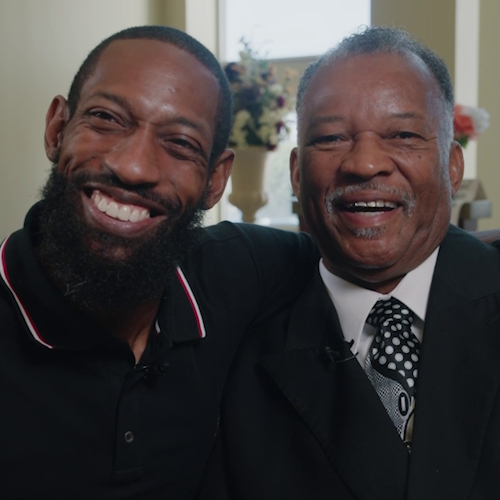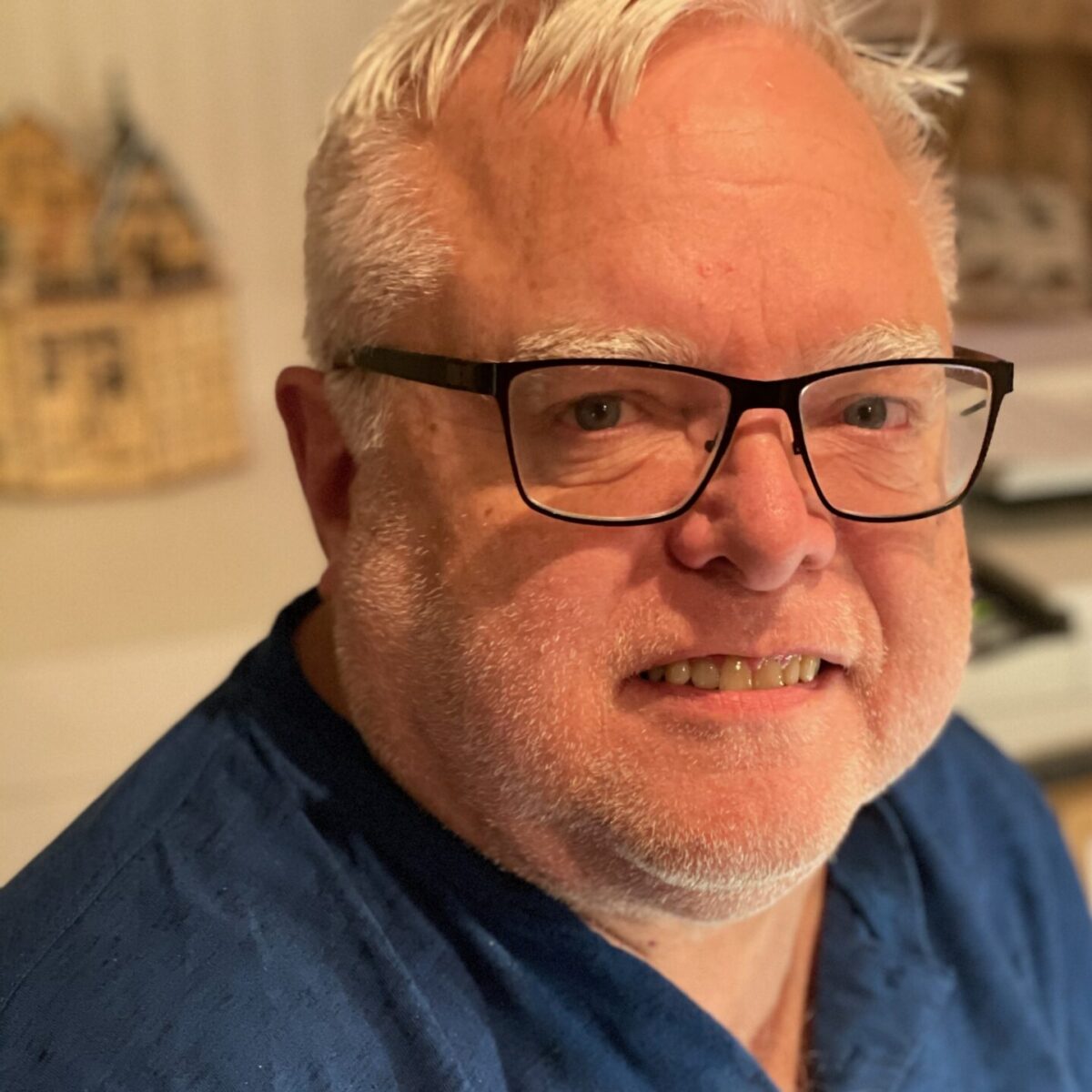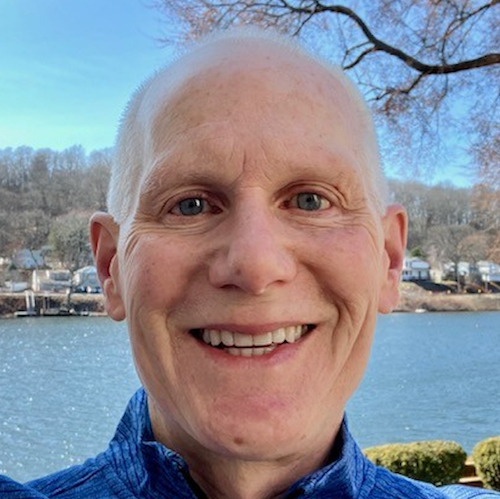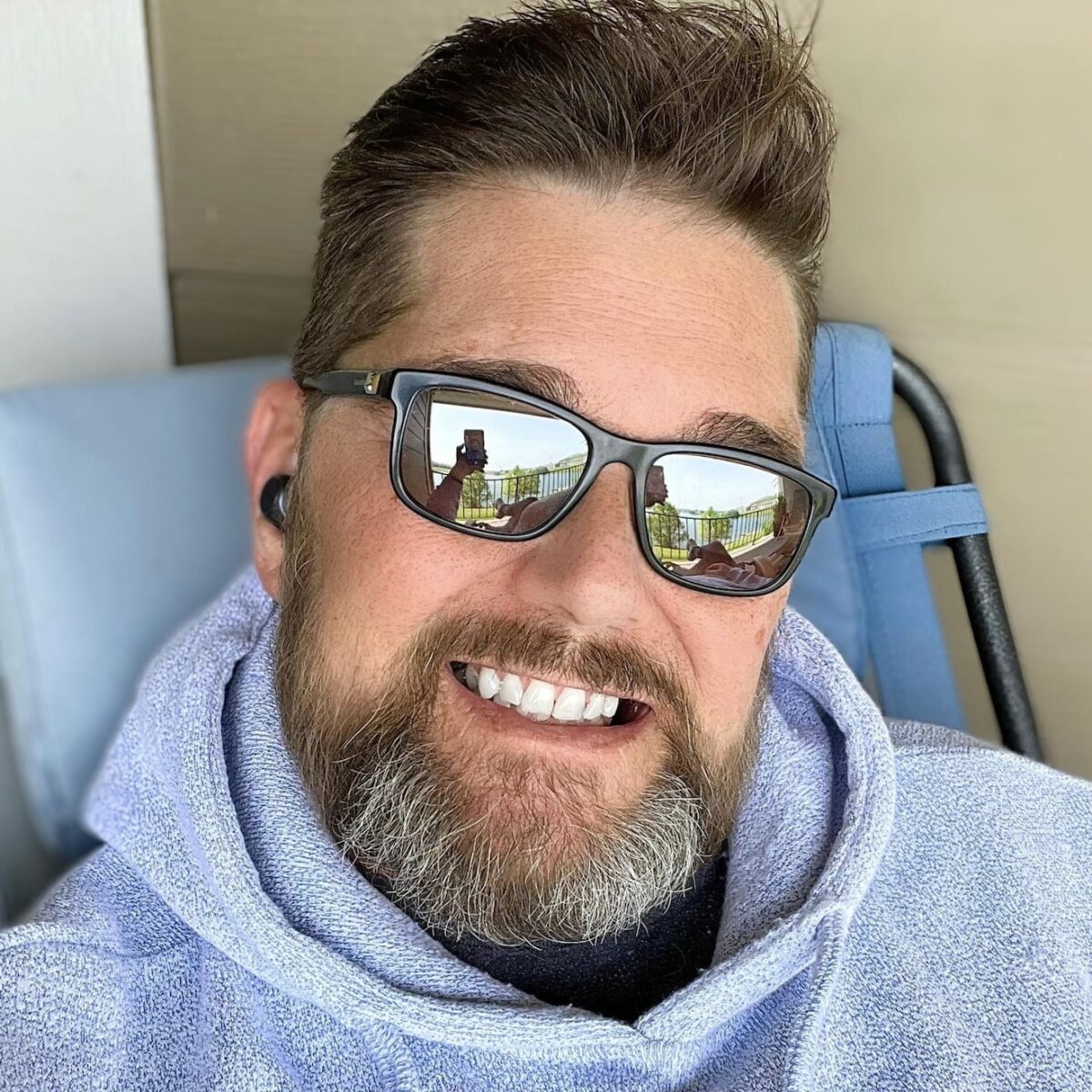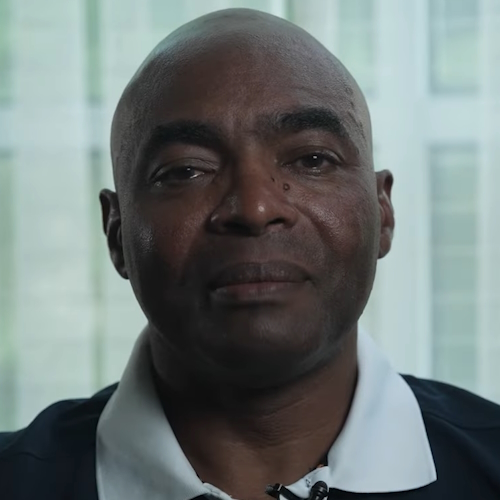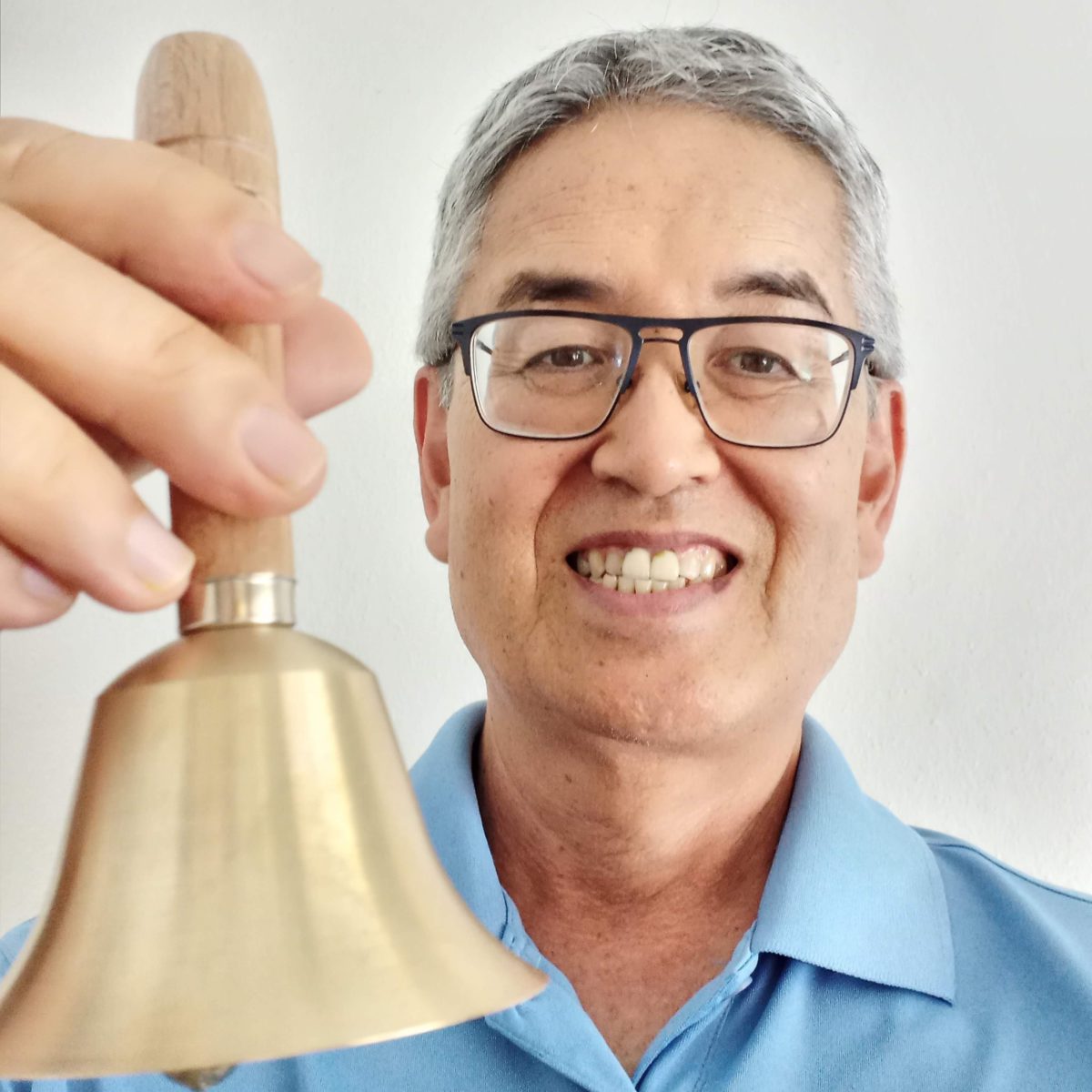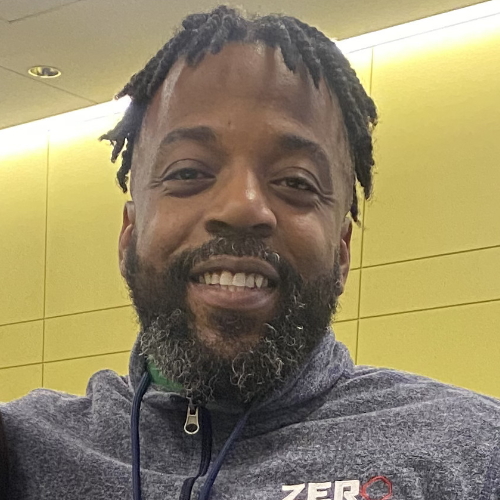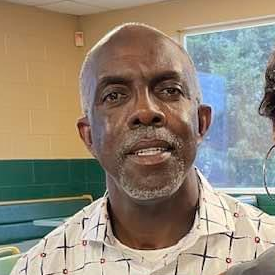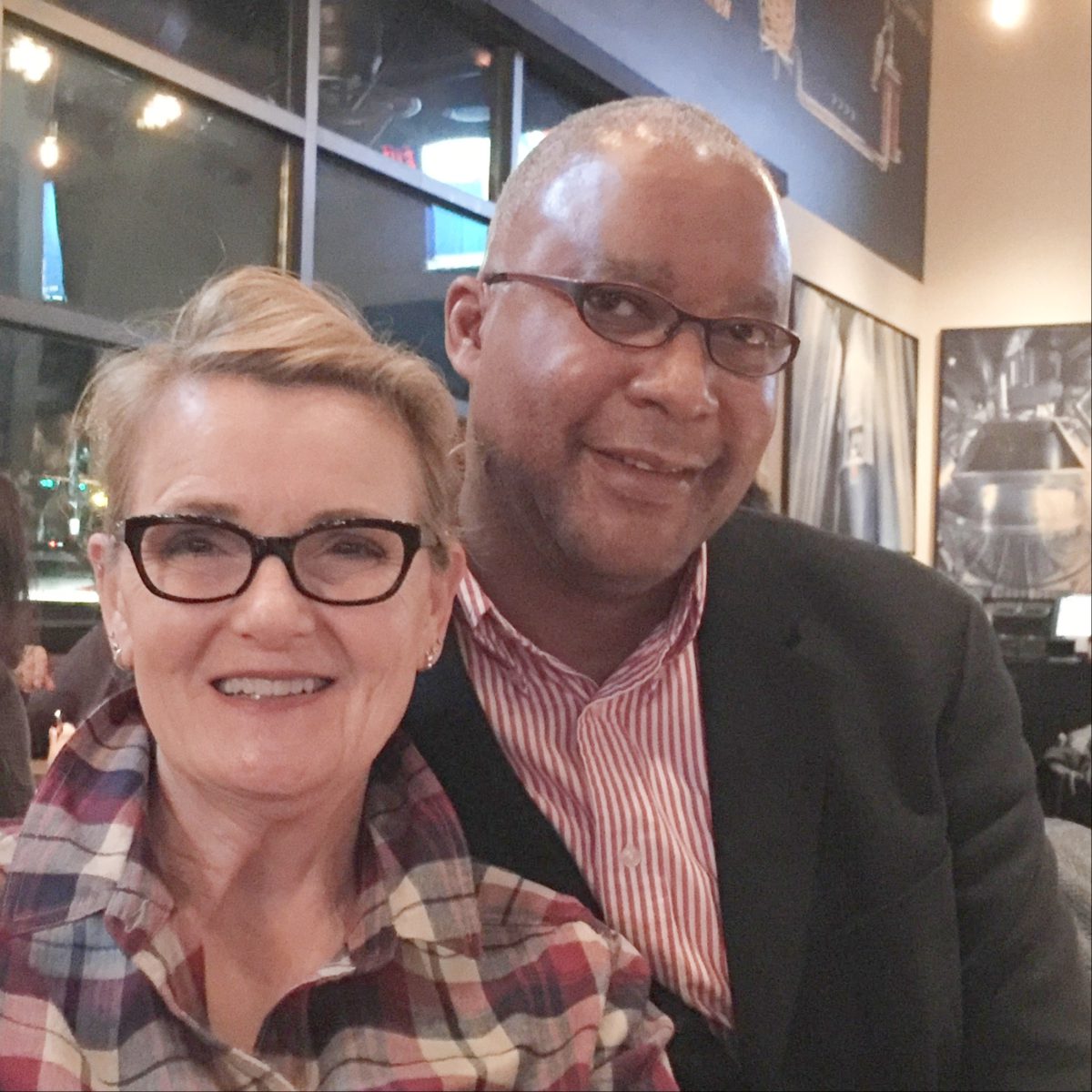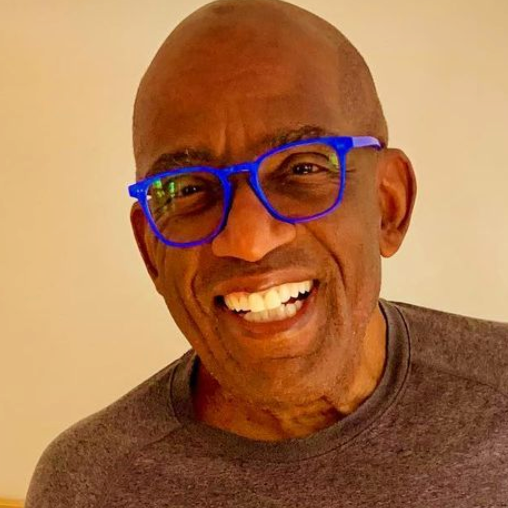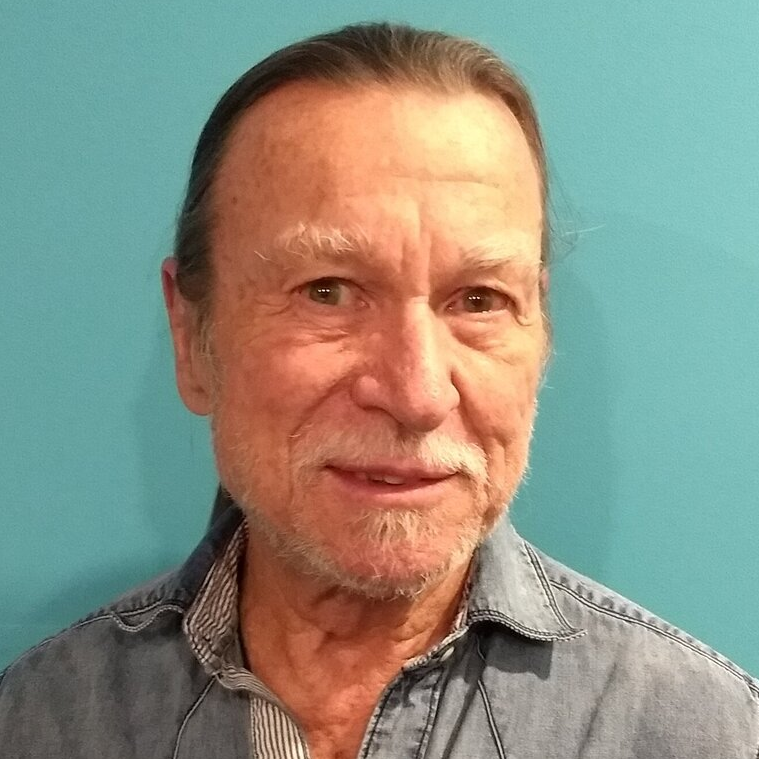“Go Get a Checkup.” – Joseph’s Prostate Cancer Advice
Joseph Martin was living a full life surrounded by family when he was diagnosed with prostate cancer. The news came as a shock and forced him to face questions about his health, future, and faith.
In this cancer vlog, Joseph shares how he navigated his diagnosis, chose robotic surgery, and learned to open up to his loved ones about his health. With his wife, a nurse, by his side, and his children offering support, Joseph found strength in family conversations and regular checkups. His message encourages others to take care of themselves, seek medical guidance, and cherish every moment with family.

Thank you to Pfizer for supporting our independent patient education content. The Patient Story retains full editorial control.
This interview has been edited for clarity and length. This is not medical advice. Please consult with your healthcare provider to make informed treatment decisions.
The views and opinions expressed in this interview do not necessarily reflect those of The Patient Story.
Edited by: Katrina Villareal
Every 13 minutes, a Black man is diagnosed with prostate cancer. (American Cancer Society, 2022)
Meet Joseph
My name is Joseph Martin. I’m a survivor of prostate cancer.
Learning He Has Prostate Cancer
I didn’t know that much about it. I just heard of it. I didn’t ever think that I would have cancer, but you never know what life is going to bring you.
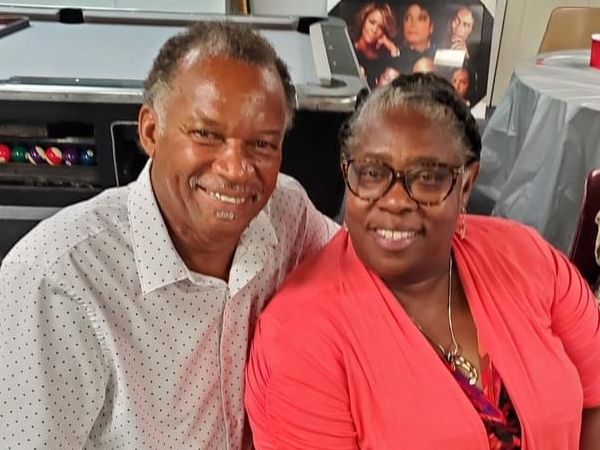
Black and African American men are much more likely to develop prostate cancer. 1 in 6 Black men will develop prostate cancer in their lifetime — compared to 1 in 8 men overall. (American Cancer Society, 2022)
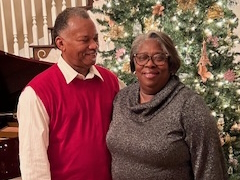
Talking with His Wife and Doctors
When you hear something that you don’t know whether you can live with or without, it makes you think. I talked with the urologists, the doctors, and my wife, who was a nurse. We sat down and talked about the possibilities of what could be and what could not be. Once I decided that I wanted to do the robotic surgery, it was a challenge and something to get used to, but we overcame it, and I’ve been doing great.
Today, there are over 3 million prostate cancer survivors in the United States. Black men in the U.S. and Caribbean have the highest documented prostate cancer incidence rates in the world. (American Cancer Society, 2022)
Sharing Everything with His Family
Whenever something goes on with me, I let my wife, my son, and my daughter know. I used to hold back from them to see first what’s going to happen. But now, when I go to the doctor and find out something serious, I tell them that we have to talk.

The National Comprehensive Cancer Network (NCCN) recommends that Black men and those with a family history should begin talking to their doctor about screening as early as age 40.
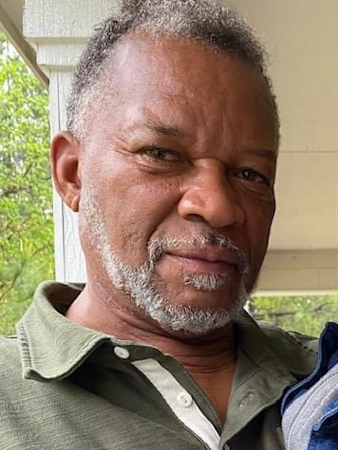
Importance of Regular Checkups and Why Early Detection Matters
You don’t have to be sick to go to the doctor. Get a checkup every six months, every three months. Do it on a regular basis. That way, if anything goes wrong, you will find out before it’s too late. Some people don’t want to do anything but work and then die. I had more life in me. I wanted to retire and do anything that I wanted to do afterward.
Go to the doctor. Sit down and talk with your family. Let them know what’s going on in your life, whether it’s good or bad. Do what it takes and what’s necessary. Live a productive life. See your grandkids grow up. See your grandkids’ kids, if you can. I would love to see my grandkids grow up and, if possible, their kids. I have two great-grandkids now. Most people never get to see great-grandkids at my age. Do the right thing and go to the doctor.
In our next episode, we introduce you to Joe’s son, Jamel, who has played an important role in his father’s cancer journey.

Thank you to Pfizer for supporting our independent patient education content. The Patient Story retains full editorial control.
This interview has been edited for clarity and length. This is not medical advice. Please consult with your healthcare provider to make informed treatment decisions.
The views and opinions expressed in this interview do not necessarily reflect those of The Patient Story.
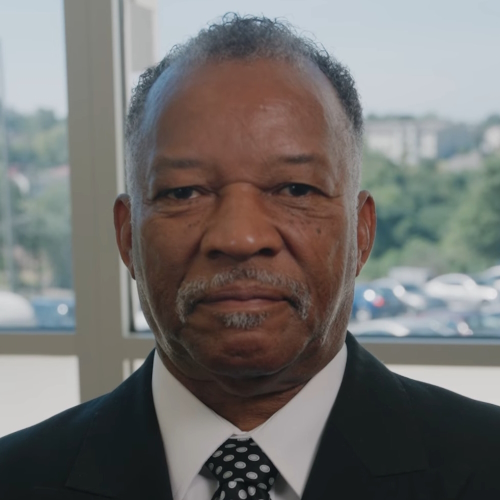
Inspired by Joseph's story?
Share your story, too!
More Prostate Cancer Stories
Jamel Martin, Son of Prostate Cancer Patient
“Take your time. Be patient with the loved one that you are caregiving for and help them embrace life.”
Joseph M., Prostate Cancer
When Joseph was diagnosed with prostate cancer, the news came as a shock and forced him to face questions about his health, future, and faith. He shares how he navigated his diagnosis, chose robotic surgery, and learned to open up to his loved ones about his health.
Rob M., Prostate Cancer, Stage 4
Symptoms: Burning sensation while urinating, erectile dysfunction
Treatments: Surgeries (radical prostatectomy, artificial urinary sphincter to address incontinence, penile prosthesis), radiation therapy (EBRT), hormone therapy (androgen deprivation therapy or ADT)
John B., Prostate Cancer, Gleason 9, Stage 4A
Symptoms: Nocturia (frequent urination at night), weak stream of urine
Treatments: Surgery (prostatectomy), hormone therapy (androgen deprivation therapy), radiation
Eve G., Prostate Cancer, Gleason 9
Symptom: None; elevated PSA levels detected during annual physicals
Treatments: Surgeries (robot-assisted laparoscopic prostatectomy & bilateral orchiectomy), radiation, hormone therapy
Lonnie V., Prostate Cancer, Stage 4
Symptoms: Urination issues, general body pain, severe lower body pain
Treatments: Hormone therapy, targeted therapy (through clinical trial), radiation
Paul G., Prostate Cancer, Gleason 7
Symptom: None; elevated PSA levels
Treatments: Prostatectomy (surgery), radiation, hormone therapy
Tim J., Prostate Cancer, Stage 1
Symptom: None; elevated PSA levels
Treatments: Prostatectomy (surgery)
Mark K., Prostate Cancer, Stage 4
Symptom: Inability to walk
Treatments: Chemotherapy, monthly injection for lungs
Mical R., Prostate Cancer, Stage 2
Symptom: None; elevated PSA level detected at routine physical
Treatment: Radical prostatectomy (surgery)
Jeffrey P., Prostate Cancer, Gleason 7
Symptom: None; routine PSA test, then IsoPSA test
Treatment: Laparoscopic prostatectomy
Theo W., Prostate Cancer, Gleason 7
Symptom: None; elevated PSA level of 72
Treatments: Surgery, radiation
Dennis G., Prostate Cancer, Gleason 9 (Contained)
Symptoms: Urinating more frequently middle of night, slower urine flow
Treatments: Radical prostatectomy (surgery), salvage radiation, hormone therapy (Lupron)
Bruce M., Prostate Cancer, Stage 4A, Gleason 8/9
Symptom: Urination changes
Treatments: Radical prostatectomy (surgery), salvage radiation, hormone therapy (Casodex & Lupron)
Al Roker, Prostate Cancer, Gleason 7+, Aggressive
Symptom: None; elevated PSA level caught at routine physical
Treatment: Radical prostatectomy (surgery)
Steve R., Prostate Cancer, Stage 4, Gleason 6
Symptom: Rising PSA level
Treatments: IMRT (radiation therapy), brachytherapy, surgery, and lutetium-177
Clarence S., Prostate Cancer, Low Gleason Score
Symptom: None; fluctuating PSA levels
Treatment: Radical prostatectomy (surgery)
